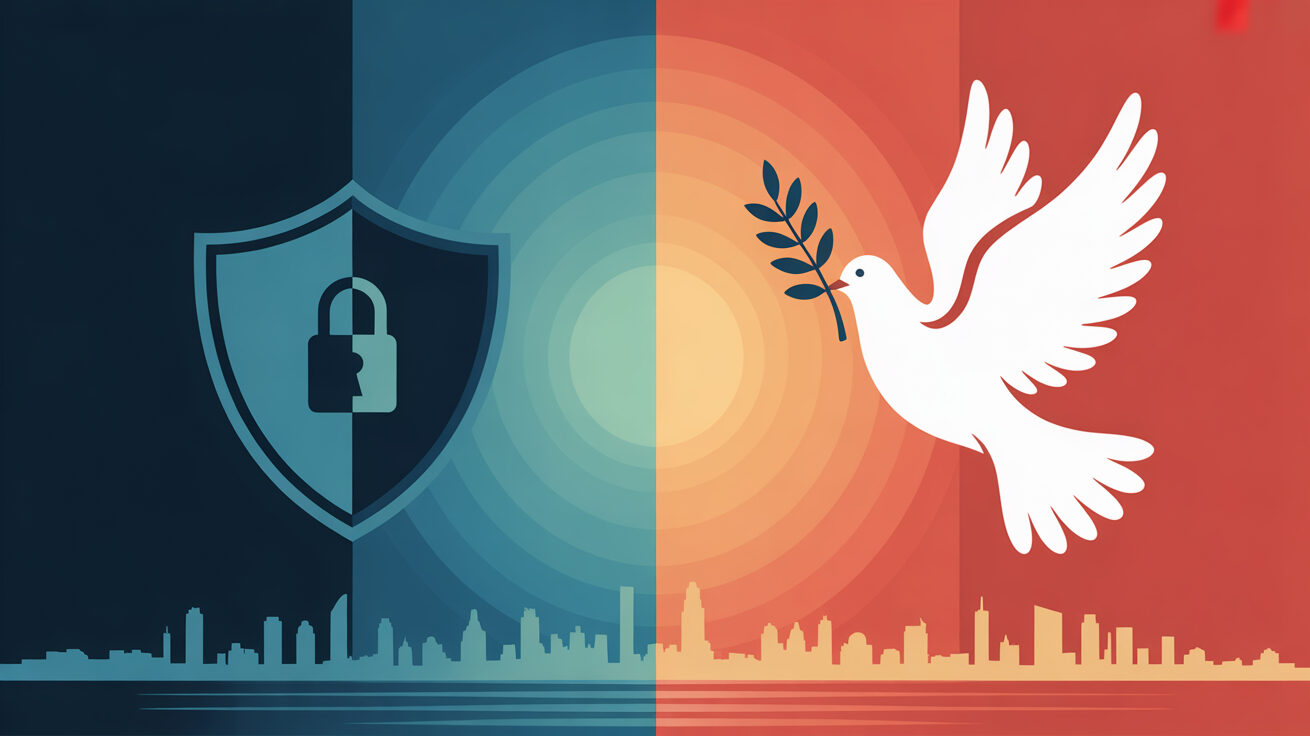Israel’s ‘Security First’ Policy
Al-Ittihad, UAE, September 23
Israel continues to prioritize its “security first” policy, consistently pushing the prospect of peace to the foreground. Its political thinking and daily concerns have become overwhelmingly centered on ensuring security, sidelining the pursuit of peace. This fixation has placed security at the heart of Israel’s policies, obscuring and undermining the essential role of peace in achieving lasting stability.
While Israel maintains relationships with certain regional countries under the banner of peace, its dealings with the Palestinians remain rooted in brute force—anchored in the narrow concept of security while excluding peace, the very foundation that serves as the incubator and generator of sustainable security. A significant portion of Israeli society favors coexistence and a genuine peace with the Palestinians, yet the state takes no real steps toward replacing its security-first mindset with a peace-driven strategy that could build a lasting partnership with its neighbors and the Palestinian people. Instead, it relies on military power as a shield, without securing the long-term stability that only peace can bring.
Several factors could eventually push Israel toward such a shift: the growing internal pressures of human and financial costs, the burden of prolonged wars, the recurring cycle of conflict, the heavy toll on daily life, the weakening of economic security, and the erosion of political stability within the state itself. A new dynamic has also entered Israel’s relations with the Arab world through the Abraham Accords, which open opportunities for tolerance and reconciliation—opportunities that could flourish if Israel were to engage in genuine dialogue and pursue peace with the Palestinians, thereby advancing the long-sought stability of the Middle East.
Give the gift of hope
We practice what we preach:
accurate, fearless journalism. But we can't do it alone.
- On the ground in Gaza, Syria, Israel, Egypt, Pakistan, and more
- Our program trained more than 100 journalists
- Calling out fake news and reporting real facts
- On the ground in Gaza, Syria, Israel, Egypt, Pakistan, and more
- Our program trained more than 100 journalists
- Calling out fake news and reporting real facts
Join us.
Support The Media Line. Save democracy.
At the same time, international calls for a two-state solution are intensifying, with successive recognitions of the Palestinian state gaining momentum. Regional shifts are increasingly unfavorable to Israel, which continues to lose ground by squandering diplomatic opportunities, while the Palestinian cause garners growing support from European and global public opinion. This rising international legitimacy strengthens the Palestinians’ resolve to maintain their legitimate national rights and simultaneously diminishes Israel’s standing both regionally and globally.
Under the leadership of Benjamin Netanyahu, Israel has mismanaged the ongoing conflict, allowing its military strength to blind it to the critical political realities of the region. This shortsightedness was especially evident in its reckless attack on Qatar, a key mediator in delicate negotiations. By striking at the sovereignty of a negotiating state and its team, Israel committed an act of strategic folly that many consider unforgivable. The Gulf region’s atmosphere has since shifted, alliances have become shrouded in uncertainty, and the regional security landscape now demands a clearer reassessment of Israel’s priorities and external relationships.
Israel must free itself from illusions of invincibility, from self-admiration, and from the narcissistic outlook that isolates it from its geographic and political environment. As the saying goes, one cannot step into the same river twice—a reminder that opportunities once missed cannot easily be reclaimed. Israel’s continued inhumane treatment of the steadfast Palestinian people, who are inseparable from their land and identity, and its persistent attempts to displace them through oppression, killing, torture, relentless bombardment, and systematic humiliation, represent an immoral and profoundly dangerous path. Such actions risk driving Palestinians of all ages toward extremism, a development for which Israel itself will ultimately bear the cost.
Ahmed Al Hosani (Translated by Asaf Zilberfarb)



